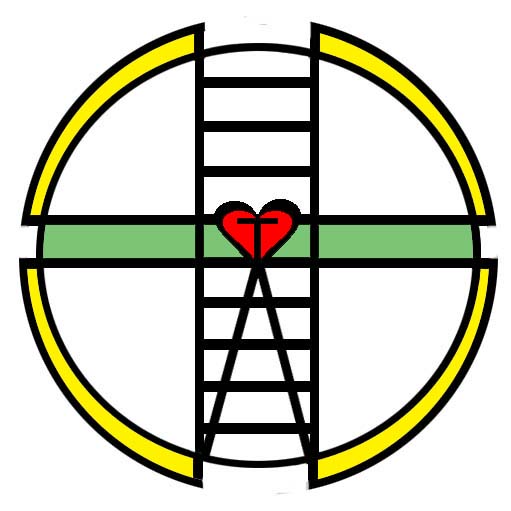Club COSTA - Circle of Support for Teens and Adults with FASD

Club COSTA - Circle of Support for Teens and Adults with FASD

Welcome! Club COSTA is a self-advocate support group for individuals with Fetal Alcohol Spectrum Disorders (FASD) and their parents and guardians. A diagnosis is not required to be part of this group, just a reasonable suspicion that symptoms may be caused by prenatal exposure to alcohol. If you would like to form a local support group like this, please feel free to download and use any of the following documents that you think might be helpful.
How to Get Started: A step-by-step guide on how to start a local self-advocacy group for individuals with FASD. ClubCOSTAStart.pdf
Club COSTA in Arizona: An article about how our local group got started and what we are all about. ClubCOSTAarticle.pdf
PowerPoint Presentation: This presentation was made for the SAMHSA Building FASD State Systems Conference. You may use it to share awareness or get support for your own group. ClubCOSTA.ppt
Self Advocate Inventory: This worksheet is a good place to start. It will help them learn "person first" language, and will help them identify themselves first as a person, helps them feel more accepting of their reality, and then guides them in explaining their disability to others (when it is appropriate to do so). SelfAdvocateInventory.doc
Letter: Here is the response to a question about how to start a P2P (peer-to-peer) group that was posted on the FASDlane mail list:
Here in Tucson, Arizona, I have been doing screenings and meeting with families on an individual basis. We have a support group for the parents, but after meeting with several older teens and young adults (and their parent/mentors), I realized they are experiencing social isolation and loneliness (both the young adults and their parents). So I started a Circle of Support for Teens and Young Adults (C.O.S.T.A.). We call it Club COSTA. Since I don't have any funding, I had to ask around for help. We meet on one Saturday morning each month. We needed a safe, comfortable place to meet, so we asked a local church if they would sponsor us. They gladly agreed.
Parent/mentors are expected to come and participate along with the young adults. I was going to split them up into two groups, so the young people could share apart from their parents, but everyone was more comfortable having all of us share together in one group. That has worked out really well.
We meet for two hours and follow an agenda that is flexible but provides structure that they need.
First we do introductions (even when everyone knows everyone else). Sometimes we have each person say their name and something they are really good at. Other times we have everyone share their first name, their greatest accomplishment in the past month, and the biggest challenge they are coping with right now. Or we do something fun and wild, like a memory introduction game, where each person says their name then repeats the names of the persons introduced before them. What's funny is the parents mess up more than the kids, and we all laugh at ourselves.
After resolving any issues that come up, we do a discussion on a pre-planned lesson, or we address the issues that came up during the introductions. Sometimes we do worksheets that we talk about. We do a lot of "what if" scenarios to help them use critical thinking to work through the steps from an action to a consequence, and to help evaluate the pros and cons of different responses to difficult situations. We talk about values like Respect and Responsibility. We talk about WHY it is important to show respect to all persons. We talk openly about the challenges of having an FASD, like poor judgment and impulsivity and social dysmaturity. There are several articles that can be used for discussion starters at the www.fasdlane.com web site, including some videos that might be good to show, if you have internet access.
There is a great deal of open sharing and acceptance and mutual support. Lots of good insights and self honesty.
I bring chocolate to share (helps increase the serotonin) like Hershey Kisses or Snickers fun bars.
We always end on a positive note, acknowledging little personal successes. Everyone gets a token "prize" to take home, some small thing that is symbolic, like a tea bag to use to self calm later, or a colored pen to journal their feelings, or a colorful folder to keep their notes in.
Everyone chips in for pizza at the end of the meeting. Everyone goes home with good feelings. Everyone looks forward to the next gathering.
The cost is minimal. You can probably find a community leader, business, or agency that will cover the expenses. A good place to seek help with starting this up would be your local Arc chapter (www.thearc.org) or your local behavioral health agency. If you are in the US, be sure to seek the advice of your FASD State Coordinator (http://www.fasdcenter.samhsa.gov/Index.aspx click on State Systems, check to see if your state is on this Roster: http://fasdcenter.samhsa.gov/documents/NAFSC_Roster.pdf) There was a self-advocacy group formed through the FASD Center for Excellence, but since funding is up in the air right now, I don't know how much help you can get from them, but the SAFA (Self Advocates with FASD in Action) network leader at the Arc is Leigh Ann Davis in Washington, DC, email ldavis@thearc.org.
Good luck!
Teresa
This web page http://fasdlane.com/COSTA.html was last updated October 28, 2012